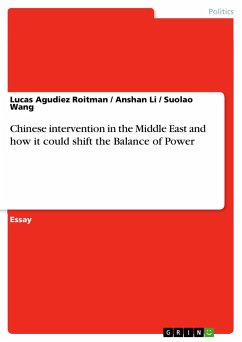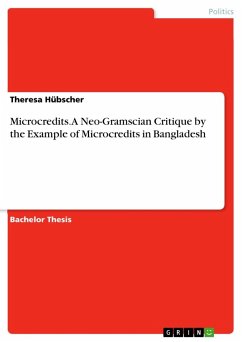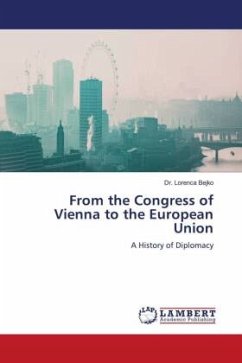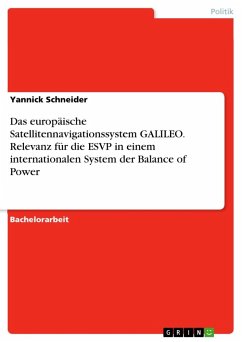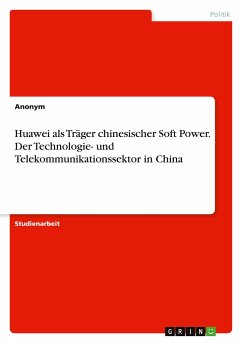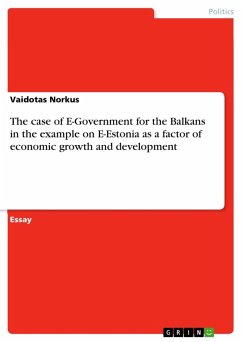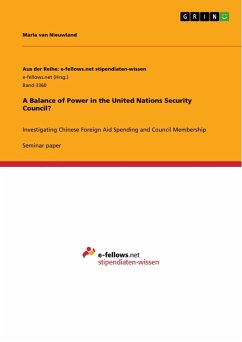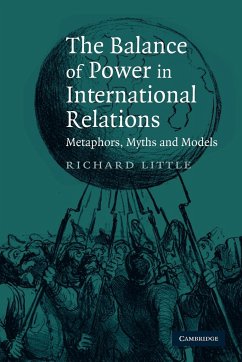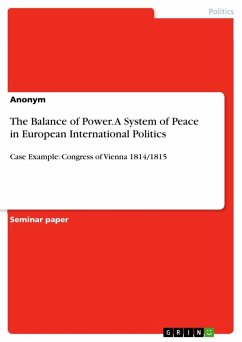
The Balance of Power. A System of Peace in European International Politics
Case Example: Congress of Vienna 1814/1815

PAYBACK Punkte
0 °P sammeln!
Seminar paper from the year 2008 in the subject Politics - International Politics - Topic: International Organisations, grade: 1,7, University of Tubingen, course: Hauptseminar: Peace Settlements and Institutions, language: English, abstract: In this paper at hand, I assume that every peace settlement presents either a new regulation of an international system or a kind of fundamental change in international understanding of legitimacy and legality. The "system concept" implies that there must be some interconnectedness between the component parts (such as states, communities etc). An entity, ...
Seminar paper from the year 2008 in the subject Politics - International Politics - Topic: International Organisations, grade: 1,7, University of Tubingen, course: Hauptseminar: Peace Settlements and Institutions, language: English, abstract: In this paper at hand, I assume that every peace settlement presents either a new regulation of an international system or a kind of fundamental change in international understanding of legitimacy and legality. The "system concept" implies that there must be some interconnectedness between the component parts (such as states, communities etc). An entity, which is totally disconnected, cannot be a part of a system. Moreover, the concept of system implies some degree of regularity in relationships. According to Luard, "where the behaviour is entirely unpredictable, arbitrary and wayward, no system of relations can be said to exist". (Luard 1992: 11) Luard's assumption is "in a system, behaviour must be sufficiently consistent and regular that,over the long term, a recognisable pattern results" (Luard 1992: 12) that it appears systematic. If a system existed, it must be demonstrated by deeds as well as words. Therefore, the preoccupation of this paper is defining the theory and than combining the theory with a historical example. The common objectives of this paper are, in the first part, to formulate the idea of "Balance of Power" which is explicitly alluded to in historical peace treaties. And to discuss "Balance of Power" as an institution of international relations and diplomacy, and to formulate different models of "Balance of Power", so that they may be subjected to appropriate combination with historical example.




